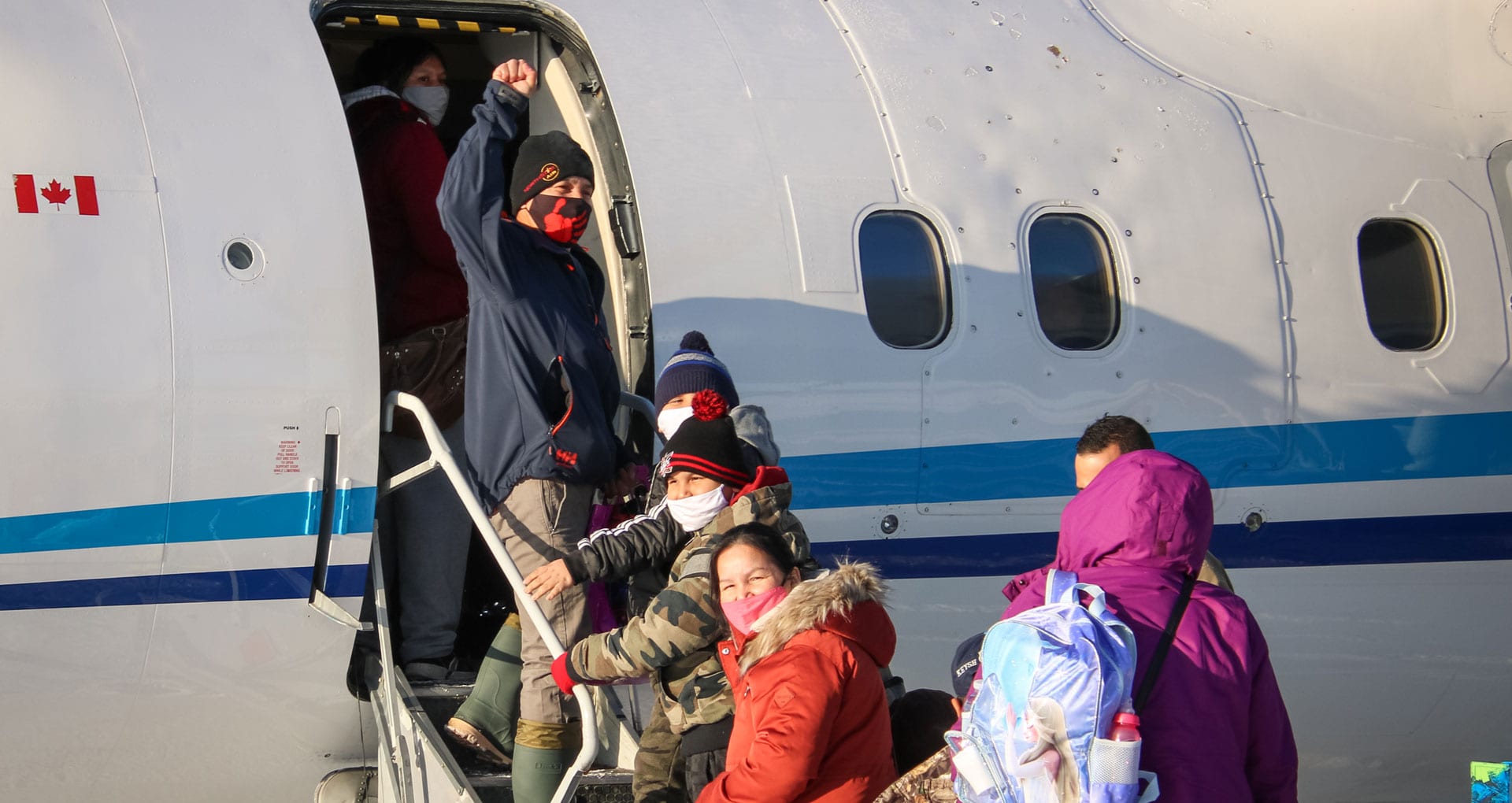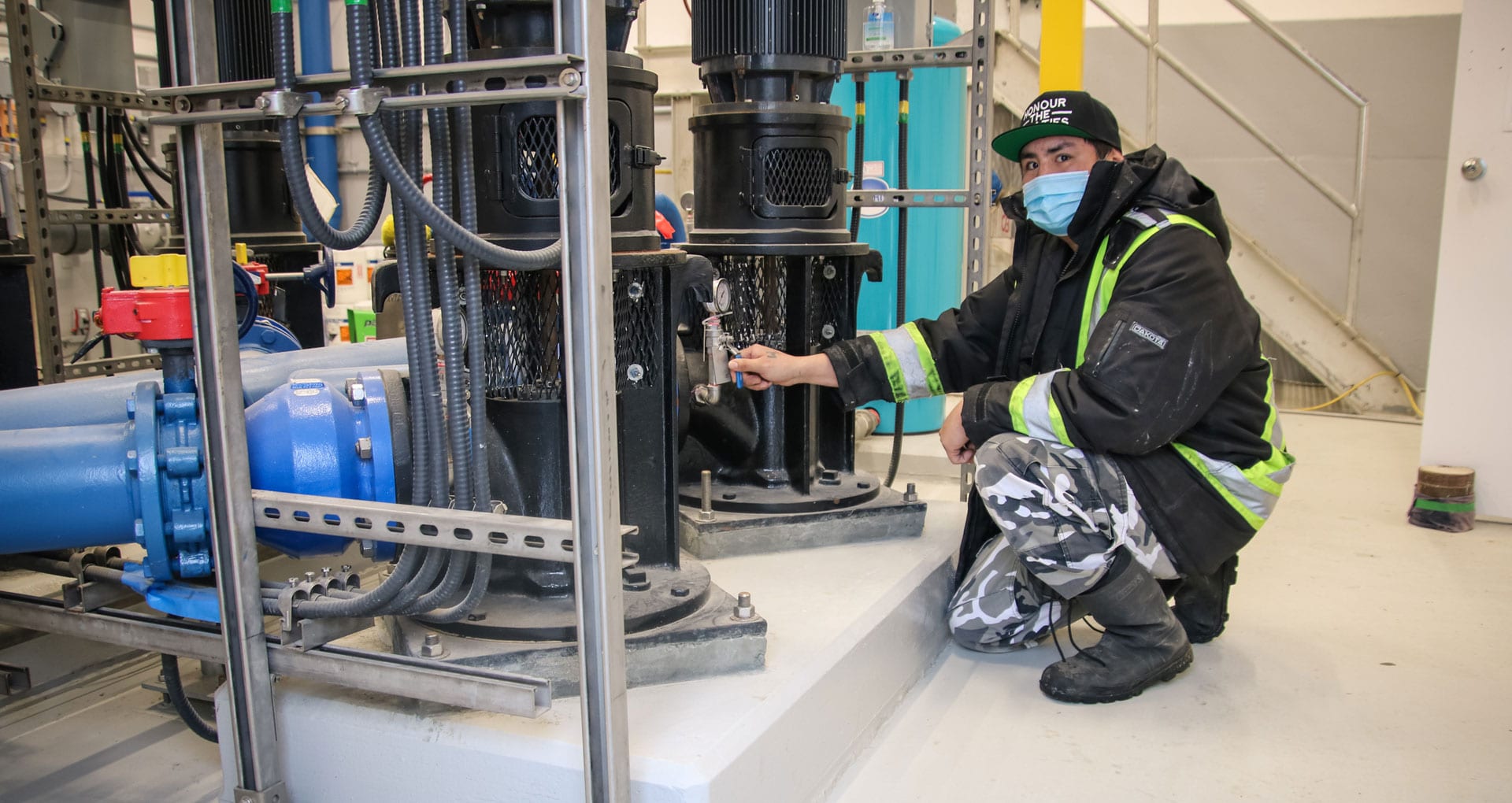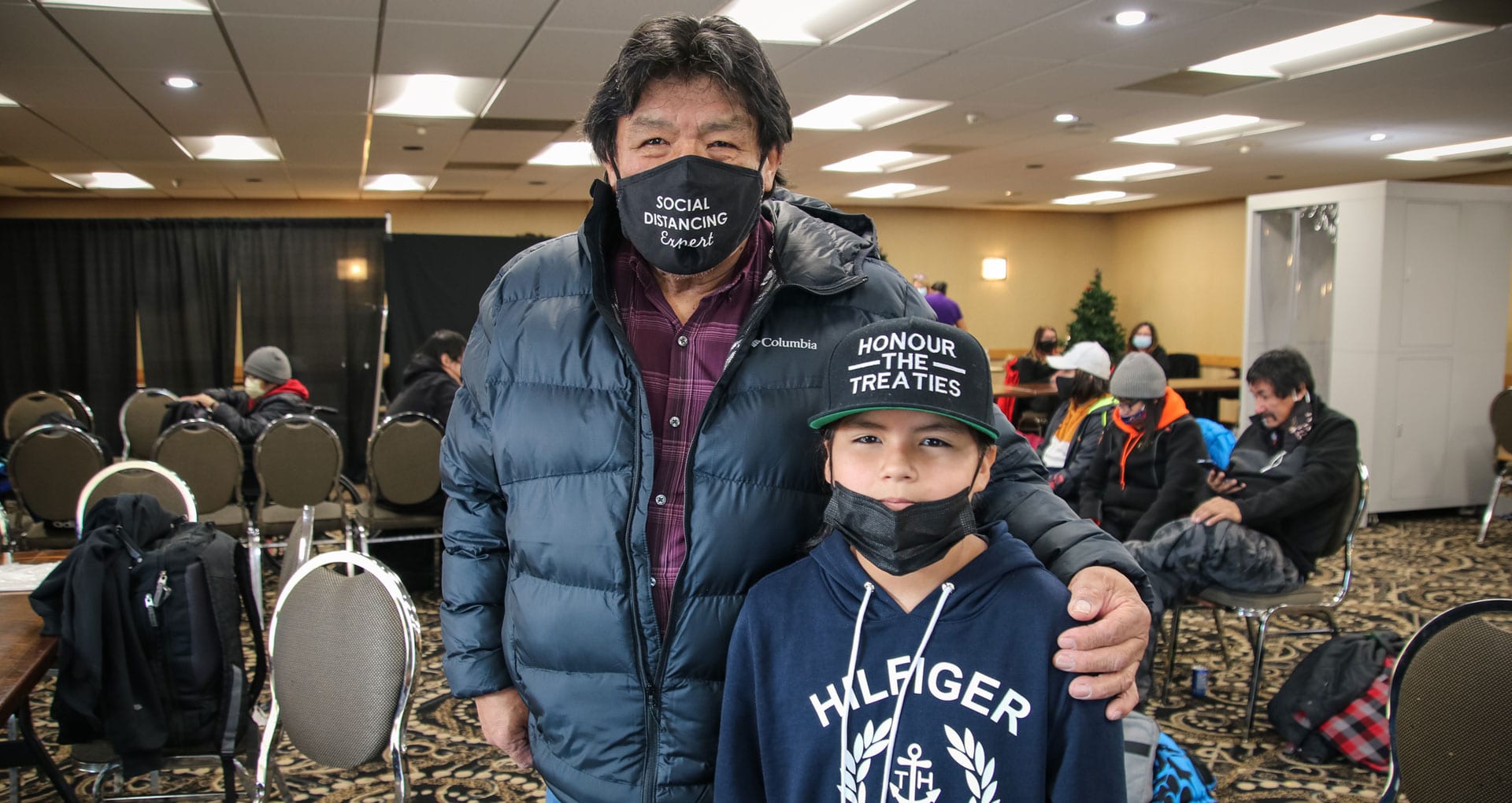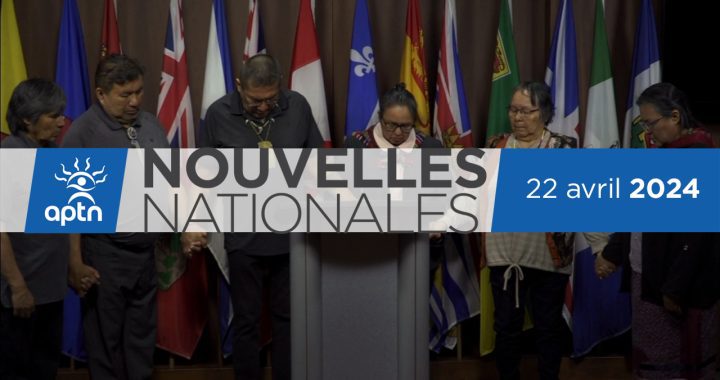Members of the Oji-Cree community of Neskantaga First Nation are back at home after being force to flee their homes because of water issues.
But despite the return, about 250 members will still be living under a boil water advisory.
The community has been staying in Thunder Bay since October after a forced shut down of their water treatment plant due to an unknown oily substance appearing on top of their reservoir.
That was a distant memory as members got off the plane and were greeted with cheers and warm greetings from leadership and members who stayed behind during the evacuation.

“[I’m] really happy and glad to be home,” Hilda Moonias said.
Because of COVID-19, the community would only let one media outlet in to document the return. That reporter and camera operator supplied the interviews and visuals to various news organizations including APTN News.
Members are returning home to cleaner water than before but it’s still not safe enough to drink so they will remain on a boil water advisory, which has been in place for 25 years and counting.
It is the longest boil water advisory in the country.
The first thing Charla Moonias noticed when she got home is how clear the water is.
“I’m glad that it’s clearer now but why is it taking so long for us to get off the boil water advisory?” she said.
Moonias, 23, has never been able to drink the water in Neskantaga.
She said many don’t understand the mental toll this has on members, especially youth.
“It’s traumatizing growing up without drinking water from the tap. All our youth they’re going to grow up scared to drink from the tap,” said Moonias.
“It’s exhausting to live like this. It’s so exhausting. It’s just extra work on us to live a healthier life and be healthy.”

The water can only be used for cleaning right now. Members will use bottled water for cooking and consumption.
For many people what’s most important right now is the ability to return to the community.
It’s been a long eight weeks of living out of hotel rooms away from the comforts of their own homes.
Two dozen residents stayed behind to help take of homes, including Derek Moonias.
“This one was really tough because we had to battle the cold and we had to battle feeding the animals and cutting wood,” he said.
Derek Moonias said he’s filled with mixed emotions seeing his family and his community come back.
While everyone has returned home the thought of the pandemic is on everyone’s mind.
He is part of a group who has been preparing for the safe return during the COVID-19 pandemic, which includes rigorous screening and community-wide isolation until tests for the virus come back negative.

Back in Thunder Bay residents had to get swabbed for the virus and had to go through a sanitizing misting booth before boarding a plane.
If a COVID-19 case got into the remote community it could have devastating effects due to overcrowding, a lack of health infrastructure and the boil-water advisory.
“I’m glad that these protocols and steps are being taken. We have very good people who create these protocols to ensure that COVID is not coming to our community,” Coleen Moonias said after getting a nasal swab.
Right now it’s not clear when the advisory will be lifted.
Chief Christopher Moonias said he hopes this will happen next year.
“Having better water than what we had before is something that we can be happy about but not to settle. We still have a lot of work to do.”
The water treatment plant can now run 24 hours a day without any interruptions, according to Chief Moonias. He said the water has been tested there are no traces of any bacteria such as E-coli. He added they need to address some minor deficiencies with the plant before it can start producing clean drinking water.
Even when the day comes it will take time to address years of living with a broken water system.
The hardest part may be getting members to actually drink the water.
“We need to work on the trauma that they faced over the 25 years. The mental health aspects to start building that trust with our nation members that we have clean drinking water,” said Chief Moonias.
For Bee Moonias it might not take as much convincing.
The nine-year-old has this one Christmas wish.
“The only wish I wish for is…getting clean water.”









